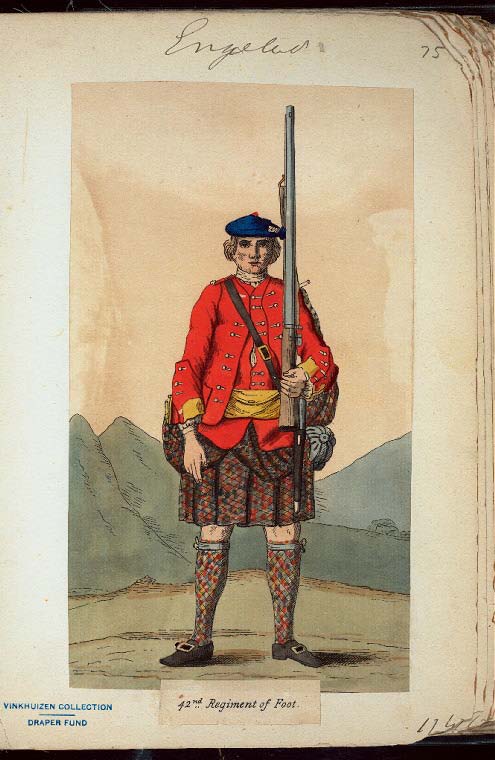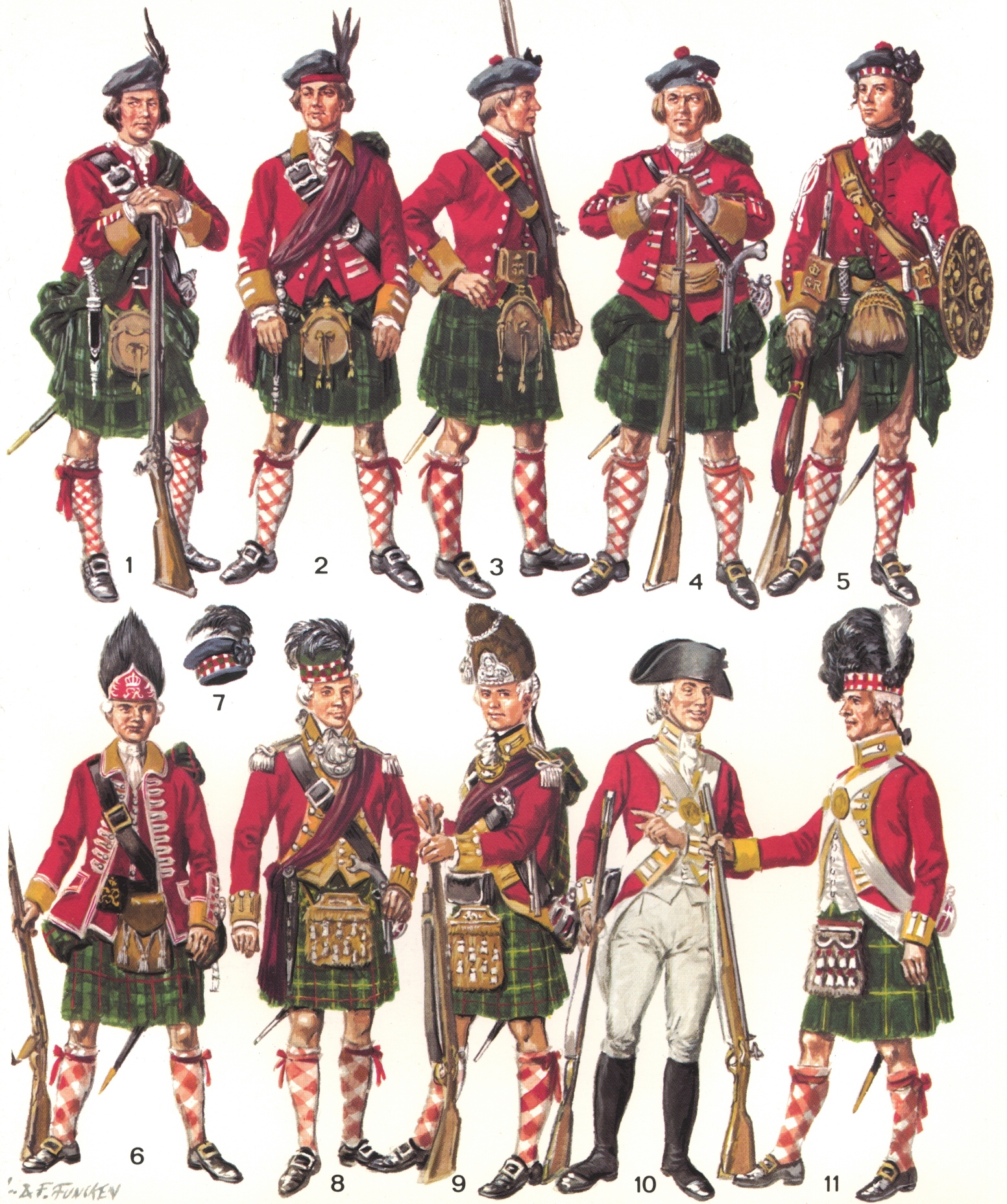
There are a number of items that your will need for your uniform. We will discuss the various items and at the end of the page there is an indepth section on the regimental coat.
The following is a lit of the items you will need from the top down.
If you are portraying a 42nd scout in the Americas, some of the clothing will be different. Instead of buckle shoes you will wear moccasins and over the hose you would wear cloth or leather leggings.
The 42nd (originally the 43rd) had a number of changes during the 18th century. One of the first descriptions comes from The Clothing Book of 1742. The following image is from that book.

This uniform is good through 1758. In 1759 the regiment became a royal regiment and the facings changed from buff to blue. Notice also, that the earlier uniform did not include lace. It is also my understansing that for field uniforms, lace may also not have been present.
An interesting note uniform is found in the Osprey Military Men-At-Arms series 18th Century Highlanders. Plate D shows a 42nd Regiment scout. Note that the scout is wearing mocassins and leggings like the American Indian peoples. Other differences include covering the canteen to lessen reflections, carrying a tomahawk, and also a powderhorn. The powderhorn and tumpline are copied from a surviving example owned by a 42nd soldier named Camron and held by SUSM. The firelock is a smaller calibre than the standard English issue, introduced in 1757. As of the writing of this page, the author has not found definitive evidence of this type of musket, but has found evidence of a .65 calibre musket used by scouts and officers.
Another good reference for uniforms is British Infantry Uniforms from Larlborough to Wellington by Liliane and Fred Funcken. The following image shows a number of examples of uniforms for the 42nd and other regiments.

List of the Uniforms